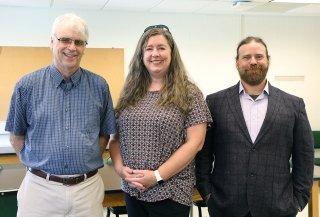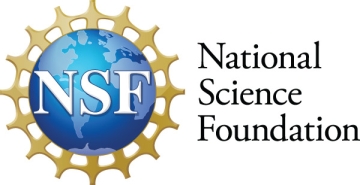Starting Out Strong in STEM: NSF Grant to Boost STEM Success
Posted:


Entry-level STEM courses are often the most rigorous of a college student’s course load. A new grant to Commonwealth University will use the power of other students to help their newest STEM classmates succeed. Commonwealth University (CU) has been awarded a three-year $400,000 Improving Undergraduate STEM Education (IUSE) grant from the National Science Foundation (NSF).
The core goals of the grant-funded project are to improve STEM teaching and learning, increase the number of students who successfully complete their first-year STEM courses, and retain more students, and more diverse students in STEM majors.
The grant, “Improving STEM Student Success Through the Integration of Learning Assistants and Co-Requisite Models in First-Year Courses,” will fund the implementation and expansion of two innovative, evidence-based practices in Commonwealth University’s College of Science and Technology and help CU fulfill its workforce development mandate by graduating more students who can fill the growing need for qualified STEM job candidates.
“This grant is exciting because it will allow us to provide more assistance when STEM students need it the most — during their first year, when many make critical decisions about whether or not to stay in the STEM career pipeline,” said Dr. Jennifer Whisner, associate professor of environmental, geographical, and geological sciences and a principal investigator on the grant.
The learning assistant model pairs specially-trained students with faculty who implement an active learning approach in their courses. Learning assistants (LA) take a one-credit course that helps them effectively engage and assist students and work closely with faculty mentors to facilitate learning both inside and outside the classroom.
The co-requisite model replaces developmental math courses with additional assistance in some sections of first-year math courses. Bloomsburg location mathematics faculty have already replaced key developmental courses with co-requisite sections, supported by a State System-wide implementation guide created under the direction of Dr. William Calhoun, professor and chair of mathematics, computer science, and digital forensics; co-principal investigator on the grant.
As the math co-requisite model is expanded to all three Commonwealth University locations (Bloomsburg, Lock Haven, and Mansfield), the grant will provide students and faculty in these transformed courses with additional support from learning assistants. The grant also provides support for CU faculty teaching first-year courses in biology, chemistry, geoscience, and physics who have committed to adapting their courses to include LA-facilitated active learning, as well as faculty professional development activities to enhance student learning and success in first-year STEM courses.
Commonwealth University Provost, Dr. Diana Rogers-Adkinson shared, “I’m proud of our faculty for their work in securing this important grant. The innovative teaching practices made possible by this grant demonstrate our faculty’s commitment to prioritizing student learning and supporting them in the most critical point of their education.”
Project impacts will be felt beyond first-year CU STEM classrooms as project research results will be used to evaluate, further develop, and share best practices in teaching and learning.
The project will be led by Whisner, Calhoun, and co-PI Dr. David DeVallance, associate dean of the College of Science and Technology.
• This material is based upon work supported by the National Science Foundation under Grant No. 2322581.
• Any opinions, findings, and conclusions or recommendations expressed in this material are those of the author(s) and do not necessarily reflect the views of the National Science Foundation.



